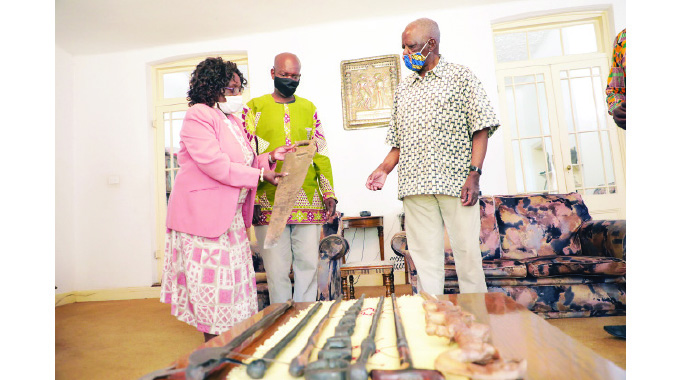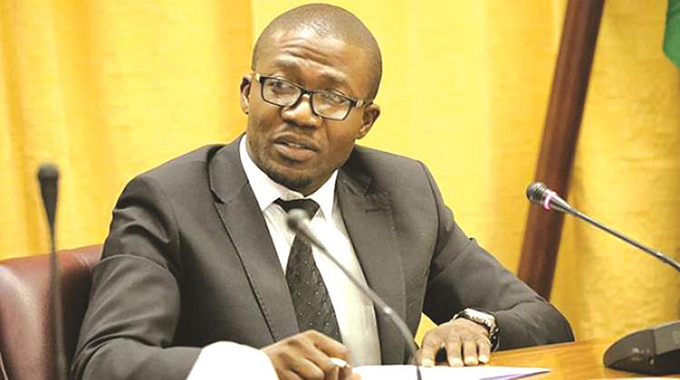Muzenda family hands over late VP’s artefacts to museum

Ivan Zhakata Herald Correspondent
THE family of the late Vice President Dr Simon Muzenda has handed over some of his artefacts to the Institute of African Knowledge (INSTAK) for display in the Museum of African Liberation.
The artefacts which included walking sticks, axes and a saw which were used by the late Dr Muzenda during and after the liberation struggle.
The museum is a continental project meant to document, preserve, protect and promote the continent’s liberation history and it is being spearheaded by INSTAK.
Speaking on behalf of the family at the handover ceremony in Harare yesterday, Mr Martin Muzenda said they hoped that the artefacts will help in teaching young people about the preservation of Zimbabwean culture.
Mr Muzenda explained how the artefacts were used by his father in keeping up with traditional values.
“These artefacts were used by the late Dr Muzenda. He used the saw for carpentry as he was a decorated carpenter and used to make furniture before he ventured into politics. He also used the axes when dancing to revolutionary songs.
“We would like to thank you (INSTAK) for recognising us by agreeing to have these artefacts displayed in the Museum of African Liberation. They will help in remembering our father’s contribution to the nation and we hope that the young generation will learn that we must not abandon our traditional values and norms. We must pride ourselves as black people through these artefacts,” he said.
INSTAK board chairman Professor Simbi Mabuko thanked the Muzenda family for giving the late Dr Muzenda’s artefacts for display in the museum.
“I would like to thank you for gathering these artefacts of the late Vice President Dr Muzenda. We know that these artefacts will help people to know Dr Muzenda’s lifestyle. When I stayed with him, I knew that he was a person who had his country at heart and he also wanted to preserve our culture.
“Traditionally, he was the person whom we would sent to represent us when things were tough. During the liberation struggle, he would be engaged to talk to spirit mediums. He was a person who knew other people’s thoughts and he fully understood our traditional culture. These are some of the artefacts which he used to hold when dancing,” he said. Prof Mabuko said visitors to the museum needed to know the life history of the liberators, of which Dr Muzenda was one of.
The museum was conceived as a monument of the epic struggle to liberate the African people from European colonialism and apartheid.









Comments